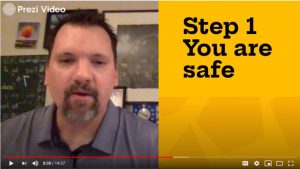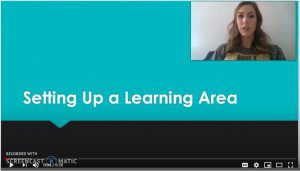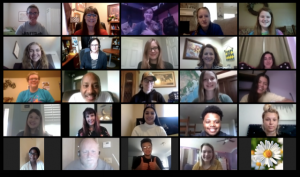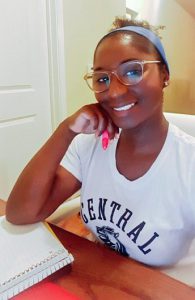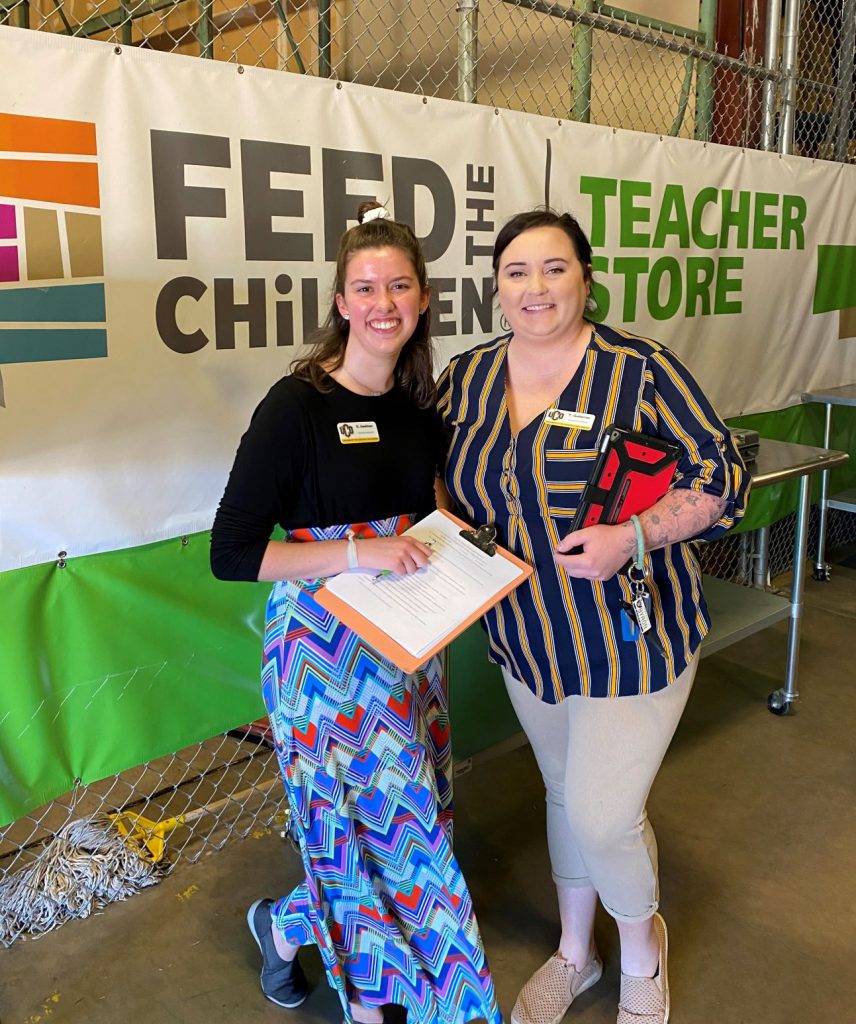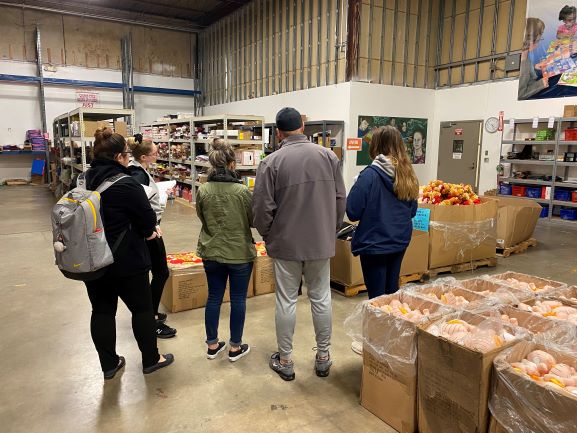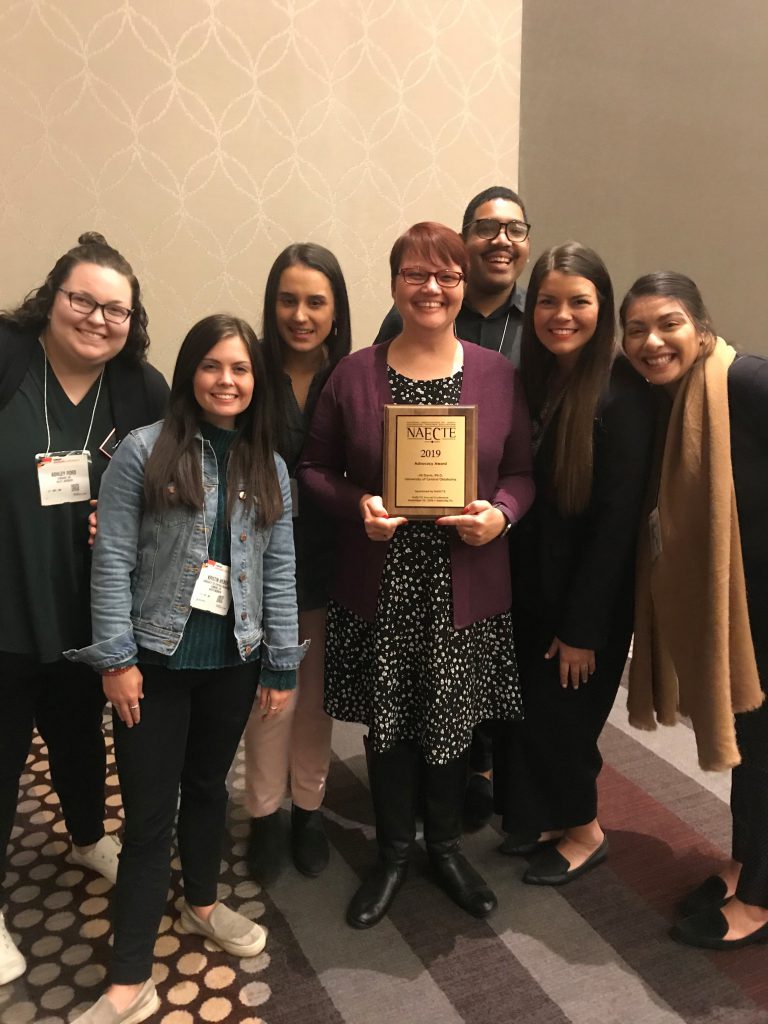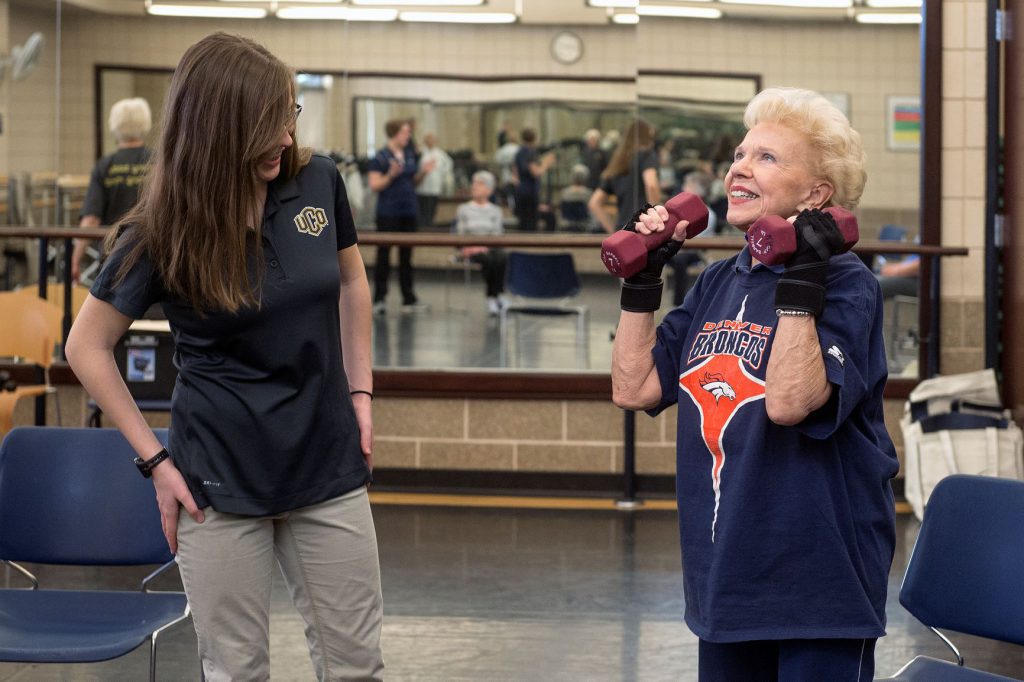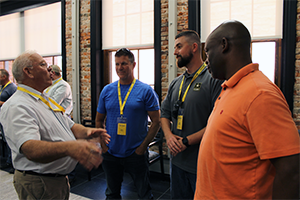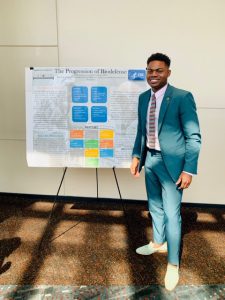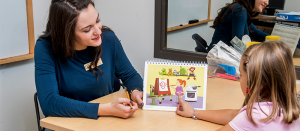 Nestled between Mitchell Hall Theatre and University Street on UCO’s campus is a small building called the President’s Annex, home to a special kind of preschool that serves the local community and provides valuable learning opportunities to current UCO students. The Oklahoma Preschool for the Deaf Early Childhood Education Center at UCO has been housed on campus for over twenty years through a partnership between the Oklahoma School for the Deaf and UCO’s Speech-Language Pathology (SLP) Program. The school has one, full-time teacher and several graduate students in the UCO SLP program that teach and provide speech-language treatment to three, four and five-year-olds with hearing impairments four days a week under the supervision of UCO faculty members. The program is free to any child with a documented hearing impairment.
Nestled between Mitchell Hall Theatre and University Street on UCO’s campus is a small building called the President’s Annex, home to a special kind of preschool that serves the local community and provides valuable learning opportunities to current UCO students. The Oklahoma Preschool for the Deaf Early Childhood Education Center at UCO has been housed on campus for over twenty years through a partnership between the Oklahoma School for the Deaf and UCO’s Speech-Language Pathology (SLP) Program. The school has one, full-time teacher and several graduate students in the UCO SLP program that teach and provide speech-language treatment to three, four and five-year-olds with hearing impairments four days a week under the supervision of UCO faculty members. The program is free to any child with a documented hearing impairment.
“We have kids from all over the metro area who attend,” said Amy Thomas, faculty supervisor of the preschool.
“We have a normal preschool curriculum, and we provide sign language support as well as normal voicing support. We have a total communication philosophy in the UCO speech-language program which means we use signing and voice together.”
Thomas herself was a graduate assistant at the preschool during her time at Central before pursuing a variety of jobs in the field of speech-language pathology. She returned to UCO in 2019 to take over as an instructor in the SLP program and the supervisor of graduate students at the preschool. Thomas explained the school offers unique opportunities to graduate students at UCO they might not receive in just the traditional classroom setting while also providing valuable resources to parents and preschoolers in the metro area as well.
“Everything I learned in this preschool when I was a student enriched my career, and I will be forever grateful for my experiences here,” she recalled.
“Just to see the way you can enrich language throughout the child’s school day gives our graduate students a more full picture of this career field.”
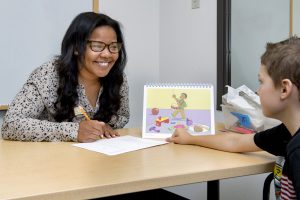 Kalen Lomas, Lucy Sargent and Katelyn Tunnell are all first-year graduate students in the UCO SLP program and assist with speech-language treatment for the preschoolers. Lomas and Tunnell provide teletherapy sessions several days a week focusing on sign-language and expressive language skills, and Sargent works in-person at the preschool assisting the children with anything from learning the days of the week to learning how to write their name.
Kalen Lomas, Lucy Sargent and Katelyn Tunnell are all first-year graduate students in the UCO SLP program and assist with speech-language treatment for the preschoolers. Lomas and Tunnell provide teletherapy sessions several days a week focusing on sign-language and expressive language skills, and Sargent works in-person at the preschool assisting the children with anything from learning the days of the week to learning how to write their name.
“It’s really interesting being in the preschool because you get to experience working with children in a different way than just with speech therapy,” said Sargent.
“Here, your goals are more teaching them how to be around each other and be social.”
While they each provide a different type of service to the students depending on the semester, they all agree the experiences have been both rewarding and valuable to their future careers.
“I have been working with a little girl this semester who really doesn’t have a lot of vocalization skills, but I get to help her use her voice,” said Tunnell.
“It is so exciting and so rewarding when she finally is able to repeat something. It is so much fun, just a very rewarding place to be.”
Recalling her experiences being in the preschool, Sargent said, “I have learned so much about behavior management. I have learned how to be flexible which is something I really didn’t think about until I started working with kids. Also, sign language… getting to do it ten hours a week with the kids has been amazing for me.”
In all, the preschool is able to serve a twofold mission: providing a space for children with hearing impairments to attend preschool and receive specialized services at no cost and creating opportunities for current UCO students to expand their skills and develop new experiences in their field. To learn more about the preschool, visit the Oklahoma School for the Deaf website or contact Amy Thomas at athomas57@uco.edu.
To donate to one of several scholarships available for students in the Speech-Language Pathology program at Central, visit one of the scholarship links below:
